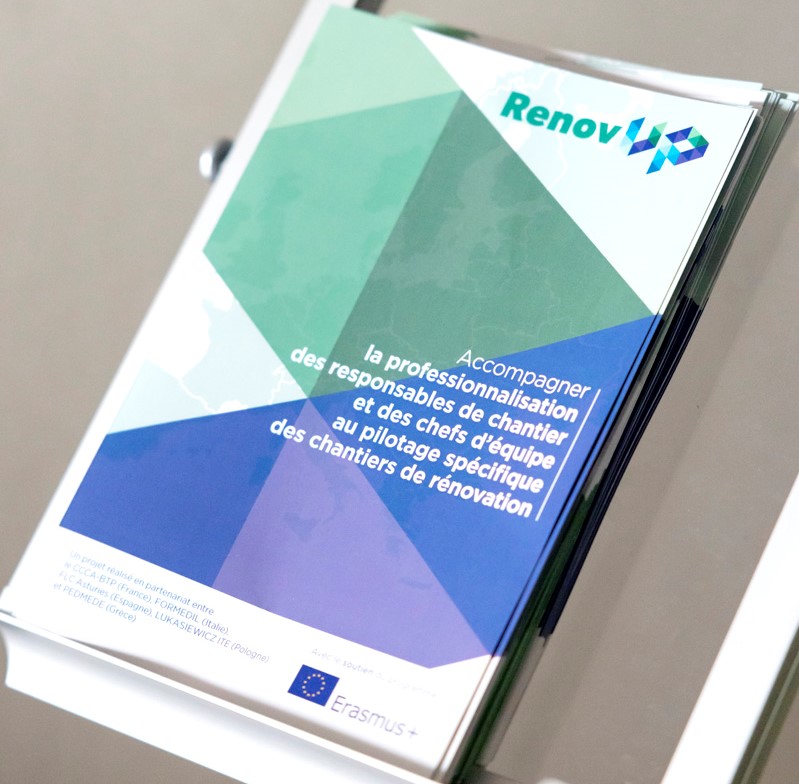The Erasmus+ Agency assesses and validates the RenovUp project
Au début du mois de novembre, l’Agence Erasmus+ France Education / Formation a rendu ses conclusions sur le projet européen RenovUp.
With a score of 85/100, the RenovUp project obtains the Good Practice Label for the quality of the project implementation as well as the achievements of its objectives.
In accordance with the provisions of your grant agreement, your final report has been subjected to a qualitative evaluation demonstrating the quality of the implementation of the project, for which you have obtained a score of 85/100, enabling you to benefit from the Good Practice Label.
The RenovUp project aims to provide VET establishments with a training scheme for two related target groups ,team leaders and site managers operating in the construction and public works sector, and more specifically in building renovation.
The project has achieved the planned objective of providing a complete system covering the entire work system-training system chain, including the positioning of learners, support for trainers, assessment of what has been learnt, and the implementation of local partnerships.
The innovation brought about by the RenovUp project was to initiate the construction of all the systems to be designed through an in-depth analysis of work situations rather than proceeding with conventional engineering based on a set of reference systems.
A quality management system has been put in place.
The partnership functioned coherently throughout all phases of the project, and the results were co-constructed by the entire consortium.
The division of tasks and responsibilities has been balanced.
In addition to traditional engineering work based on the identification of skill blocks, the project has led to the design and testing in each country of real training systems aimed at the target profiles and the trainers who will support them.
The validation of prior learning for both these audiences through a system of Open Badges has been carefully designed, developed and tested.
The impact on the organisations and participants is well explained, and it will improve the quality of their activities and their ability to cooperate internationally.
The project is creating a major synergy between the educational and professional sectors.
The introduction and testing of training based on the formative exploitation of work situations has strengthened the links between the organisations and the region’s SMEs working in the sector.
The organisations have acquired tools for analysing work situations and a methodology for incorporating the results into modular, customised training courses centred on the needs of individuals and companies.
The Agency encourages the partnership to continue its work in the directions indicated in the report.
The partners intend to continue training team leaders and site managers in the various countries (as well as training their instructors).
In addition to the outputs of the project itself, the partners have identified 7 thematic blocks which correspond to a methodology developed as part of the project, which are transferable and have the potential to be applied to other sectors and other audiences, and which can be implemented in future Erasmus+ or other projects.

